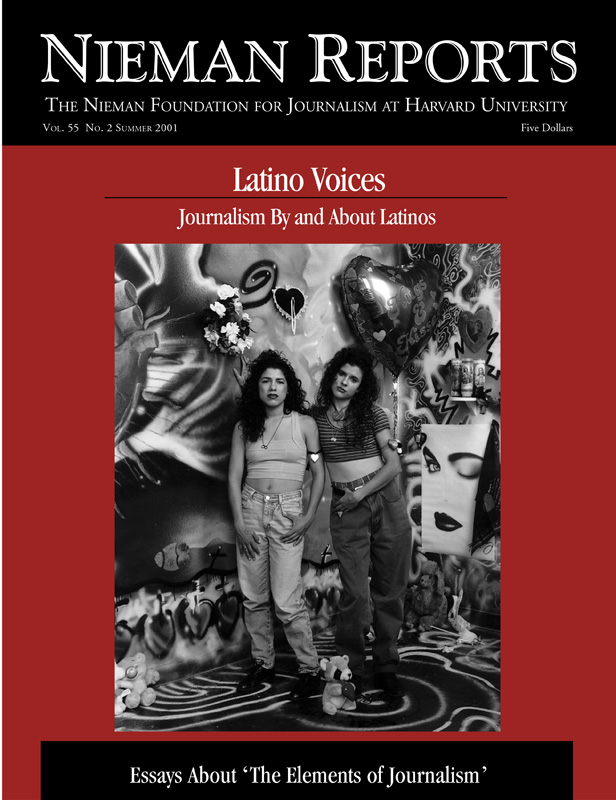David Nyhan, a columnist with The Boston Globe, describes why—at a time of deepening public mistrust of journalism—there needed to be a way of recognizing and rewarding fairness. “Rare is the subject of a news story who does not feel hard-done by the coverage,” he writes. In sharing the genesis of the Taylor Family Award for Fairness, a prize the Nieman Foundation will administer, Nyhan—whose idea set the creation of this award in motion—describes what fairness looks like. “Fairness is that level playing field we all look for,” he says.
Bob Haiman, president emeritus of the Poynter Institute, illuminates nine newspaper practices that are regarded as unfair based on interviews with community leaders and ordinary citizens. He then showcases policies and practices editors are adopting to make their coverage fairer. These examples emerge from research he did for The Freedom Forum on reader perceptions of unfairness.
Ray Brady, who for 23 years was chief business correspondent for CBS News, writes about what financial reporting looks like today. It is not a pleasing sight. He reports that “financial reporting began to look like sports reporting: ‘Give ’em the scores, and show a few highlights of the game. Above all, keep ’em entertained!’” While viewers now know much more about the stock market, Brady cautions them that journalists don’t always reveal financial tie-ins of analysts who assess the news.
Media analyst Ellen Hume reviews “The Children Are Watching: How the Media Teach About Diversity,” and shares her ideas about how media curriculums can be integrated into classrooms and why such an approach is urgently needed. “One has only to look at Bosnia and Rwanda and the impact of ‘news’ propaganda there on recent violent ethnic conflict to see what happens when independent media are compromised by propaganda,” she writes. “To counteract this, one needs informed news consumers who can tell the difference, particularly in confronting emotional issues involving diversity.”
Bob Haiman, president emeritus of the Poynter Institute, illuminates nine newspaper practices that are regarded as unfair based on interviews with community leaders and ordinary citizens. He then showcases policies and practices editors are adopting to make their coverage fairer. These examples emerge from research he did for The Freedom Forum on reader perceptions of unfairness.
Ray Brady, who for 23 years was chief business correspondent for CBS News, writes about what financial reporting looks like today. It is not a pleasing sight. He reports that “financial reporting began to look like sports reporting: ‘Give ’em the scores, and show a few highlights of the game. Above all, keep ’em entertained!’” While viewers now know much more about the stock market, Brady cautions them that journalists don’t always reveal financial tie-ins of analysts who assess the news.
Media analyst Ellen Hume reviews “The Children Are Watching: How the Media Teach About Diversity,” and shares her ideas about how media curriculums can be integrated into classrooms and why such an approach is urgently needed. “One has only to look at Bosnia and Rwanda and the impact of ‘news’ propaganda there on recent violent ethnic conflict to see what happens when independent media are compromised by propaganda,” she writes. “To counteract this, one needs informed news consumers who can tell the difference, particularly in confronting emotional issues involving diversity.”



